When I talk about young children, I’m talking typically aged 3-6years.
This is the stage where children learn about toileting and therefore dressing and undressing themselves. This is the stage where children start learning about taking care of their things and taking care of themselves. It is at this stage children start to take ownership of and pride in their belongings. They begin to develop a sense of self worth. We want to encourage this. So ultimately, all of our actions and interactions should empower independence.
We all know that this is not the stage where learning to read and write overrules, because that time will come when they get to school.
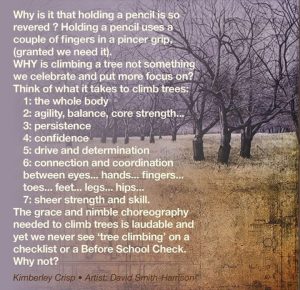
This is the stage where we foster imagination, self confidence, problem solving, resilience, self help, negotiation and kindness. Children will naturally show interest in writing their name on their artworks or noticing letters from their name in books or the playground. We can certainly extend on this, but it should not be our focus. Our focus is on growing resilient, curious, confident and kind communicators.
How do we do this??
It is all in how we act and interact.
FOSTERING SELF CARE
When a child asks “where are my shoes?” Or “I cant find my lunchbox”.
… DO NOT go and ‘find it for them. Encourage independence and foster empowerment. My typical response, in a kind manner, is… “I’m not sure, I havent been wearing your shoes 🤷♀️”.
Not to be funny, but to make them think.
As soon as we start ‘finding’ things for them, they will FOREVER expect you to do everything for them. Pretend you cant. You are too busy. If they want something they will find it/get it themselves. This is not ‘mean’ this is encouraging the behaviour you want to see. Because let’s face it, you dont want to.raise lazy or demanding children that think the world literally revolves around them. You want independent and confident problem solvers… right?
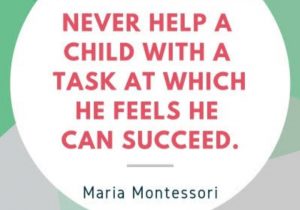
‘I can’t put my shoes on”
… dont do it for them…. show them. Take 5 minutes to teach them. Then next time, you will do less than the time before.
FOSTERING LEARNING THROUGH PLAY
When it comes to play, childrens work, allow them uninterrupted time and space, stay out of their play.
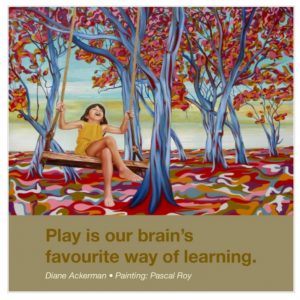
Allow children the opportunity to get fully engrossed in their play, game and conversations, without adults intervening with their unnecessary ‘truths’. By truths, I’m talking about adult beliefs, understandings, ideas and opinions. This is the ultimate way to squash the play and stop the learning.
I will never forget the day… I had 2, 4yr old girls sitting at the table eating lunch. One picked up a small block of wood and started ‘swiping’ across it. She said “this is my IPad“. Her friend picked a marmite sandwich from her lunch box and put it on her eye, she said “this is my Eye Pad”.
Each of these girls had a different truth based on their home life and upbringing. One child clearly had her very own IPad, when the other had no idea what her friend was even talking about. She had her own understanding of an eye pad. … so, was it important for me to jump in and explain to the sandwich girl what an IPad is and ultimately squash her concept of an eye pad? No. What benefit would that have? This girl was using her imagination and problem solving. Far more significant learning than what I could have given. It is more beneficial for us as adults to bite our tongue and keep our opinions, knowledge and ‘truths’ to ourselves and just allow the learning to unfold, meaningfully.
-
“Be careful what you teach,
it might I interfere with what they are learning”
-Magda Gerber
Here’s another story…
3yr old boy looks over at the hills and points, “look, there’s smoke up in the hills, they caught a pig, yeah, they sent the dogs out and they caught a pig. Now they are cooking it, singeing it, for their dinner”.
This boy was using his imagination, he was relating his prior knowledge to this moment and he was sharing what he knew, with me. If I then turned around and told him this was fog, I would have squashed all of that and shown him his voice is not valid.
He is not going to be 20 years old and not understand ‘fog’. This was not the learning that needed to come right now. It was far more important right now, for this child to make sense of his learning, use his imagination and have his voice heard and validated.
-
“When you teach a child something, you take away forever, his chance of discovering it themselves.”
-Jean Piaget
If a ‘stick’ can be a wand, a guitar, a shovel, a horse, a gun, a microphone, a fishing rod, a spoon or even a ski pole,
How do you know what it is for that child in that moment?
And who are we to squash that play and say its ‘just a stick’?
FOSTERING SOCIAL COMPETENCE
Adults should only be involved in childrens’ play when we are invited, like the above story, where the boy was teaching me about pig hunting, or if someone is going to get hurt. And then, only then, we intervene, and in a manner to empower, right?
In conflict situations, we must encourage communication, problem solving and negotiation, because these are skills we need in later life.
When you approach, with the invitation gesture, you can simply say “I won’t let you hurt”. Followed with “what is happening here?”
It is not up to us to solve their problems. Avoid telling them what words to use or assuming what has happened.
Remind them to let each other talk and to listen. Allow them the opportunity to think. You can then prompt “what can we do about it?” (Because remember, we are not here to solve their problems).
Group learning situations can be a challenge for adults but they are so beneficial for childrens learning. Be sure to listen and validate.
You don’t need to be the one that ‘rights the wrong’ and solves their arguements… or they will forever scream, cry or hurt others to resolve their conflicts. They need us to empower them, by encouraging them to solve their own conflicts, because, nothing is resolved by reacting, and we all know an adult is going to take sides… too often the wrong ‘side’.
Remind them, to “Talk to each other”. Empower them, encourage them to do the thinking. Because they are so capable when we just give them the chance!
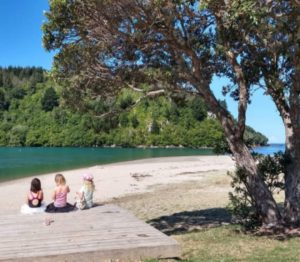
Remember, nature is the best playground for all of this learning to occur.
-
“In nature, a child finds freedom, fantasy and privacy. A place distant from the adult world, a separate place.”
-Richard Louv

I will work on a post about ‘Fostering a connection with nature‘. Be sure to check in so you dont miss it.
I hope you are enjoying my blog.
Nga mihi nui,
Nickie
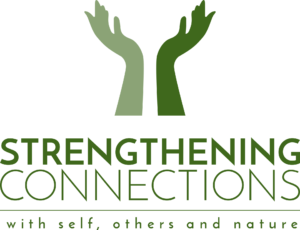
Another fantastic post Nickie and so on point!! Nothing grates me more than hearing an adult say “but their just playing” … that word “just” is so demeaning to the beautiful way children learn!! I will be sharing this one far and wide with anyone who comes at me with “it’s just playjng”.
Haha good one!
‘Just’ is a terrible word. It unvalues EVERYTHING! In teaching and in life.
Just playing, just a mum, just trying… we have to stop using the word! We are not ‘just’ anything!
There is so much learning in play! Play IS how children learn. They learn better and more through play, than we could EVER teach them! I’ll be doing a post purely on PLAY… it’s a hot topic! Keep your eye out for it.
Arohanui